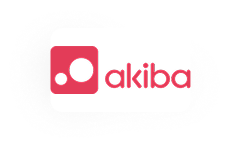A typical weekday sees Adebayo rising at 5:30 am, his body still sore from the previous day’s work. The 25-year-old Computer Engineering graduate from the University of Benin serves in a Fintech in Gwagwalada, Abuja. With a deep sigh, he pulls himself out of bed to prepare for another day at his Place of Primary Assignment (PPA).
“When I finally received the ₦77,000, I actually celebrated. I even called my parents back in Ibadan to share the good news,” Adebayo tells us, “But the reality hit differently when I realized my food prices go up every day, like every day, and transportation to my PPA now costs triple what it did when I started service last year” He continued.
Adebayo’s experience mirrors that of thousands of corps members across Nigeria who received what seemed like great news just last month: an increase in their monthly allowance from ₦33,000 to ₦77,000. The long-awaited raise comes at a time when many Nigerians are struggling with unprecedented inflation and a cost-of-living crisis that has pushed even the middle class to the brink.
Our daily bread — Realities of Nigerian corps members
Across Nigeria, over 300,000 corps members serve the nation annually, forming a unique subset of Nigeria’s workforce. Young, educated, and full of potential, these graduates represent Nigeria’s future yet, their present reality is often marked by financial strain and difficult choices.
We spent time speaking to Corp members across Nigeria — Lagos, Kaduna, Abuja, Port Harcourt and Ekiti — listening to their stories. Not just about the allowance itself, but about what it feels like to live in Nigeria today as a fresh graduate, trying to build a life with ₦77,000 a month.
Their stories revealed something deeper. This isn’t just about money, it’s about navigating adulthood with too little, too soon, and in a system that seems to be working against you from the start.
Chisom is a 24-year-old graduate of English and Literature from the University of Lagos, now serving in a public school in Obio-Akpor, Port Harcourt. She was fortunate to get free accommodation from the school management, a small room shared with three other Corpers.
“My work here is teaching English and Literature at a public secondary school in Obio/Akpor,” Chisom said. “I leave home by 6:30 am and return by 4 pm on good days. The school has no staff bus, so I spend about ₦800 daily on transportation, which to be honest is not so bad compared to how much t- fare in Lagos costs.” She continued.
When asked about the ₦77,000 allowance, Chisom’s expression shifts between gratitude and concern. “The increase is good, but prices of everything have gone up too. Last year, I could buy monthly provisions for ₦25,000; now it’s over ₦45,000 for the exact same things, some have even reduced in quality. My rent is free for this single room I share with another corps members so I don’t have to pay rent, thankfully’’
It is not uncommon to find corps members seeking additional sources of income. Despite the exhaustion from teaching over 200 students daily, Chisom offers private tutoring services on weekends. “I charge ₦5,000 per student monthly for weekend lessons. Currently, I have seven students, which gives me an extra ₦35,000. Last month I raked in ₦112,000, the highest I have had in my account for a while.”
When asked how she manages her finances and how she spent last month’s income — ₦77,000 from NYSC and ₦35,000 from tutoring. “After buying provisions, I set aside money for food, transportation, and other necessities, I put away the ₦35,000 for tutoring. I plan to keep saving that until the end of my service year.” Chisom concluded.
Press enter or click to view image in full size
The true cost of service
For Faruk, a Computer Science graduate serving in Lagos, the ₦77,000 allowance hardly covers his basic needs. The 22-year-old from Kwara State serves at a tech firm in Victoria Island but lives in Ikorodu to save on rent.
“My day starts at 4 am,” Faruk says. “I spend nearly four hours in transit daily and about ₦40,000 monthly just to get to work and back. The company doesn’t provide lunch or transport allowance.”
Faruk’s situation isn’t unique. Many corps members in major cities face similar challenges. The soaring cost of living, especially in commercial hubs like Lagos, and Abuja, has dissolved the value of the increased allowance.
“Before the increase, I couldn’t even afford three proper meals daily,” Faruk continues. “Now I can eat better, but I still can’t save much. Lagos has a way of just eating up all your money. My PPA promised a stipend when I started, but six months later, I’m still waiting.”
While this article focuses on the increased financial allowance, the true cost of service goes beyond financial strain. Amarachi, a 21-year-old Biochemistry graduate serving in Kaduna, speaks about the toll on her physical and mental health.
“Almost every night, I take painkillers before sleeping. The workload at my hospital PPA is crazy, and standing for long has affected my back,” she reveals. “I’ve been thinking of requesting a transfer, but changing your PPA can be complicated, and there’s no guarantee the next place will be better.”
Amarachi earns an additional ₦20,000 stipend from her PPA, bringing her latest monthly income to ₦97,000. “Last month, I fell ill and spent ₦25,000 on treatment. That’s a significant portion of my allowance gone in one day.”
The stress of financial insecurity affects corps members’ ability to focus on their service. Most report feeling anxious about meeting basic needs rather than concentrating on making an impact in their host communities.
Amarachi says that she is looking forward to the end of her service year as ‘health workers are undervalued and underpaid in this country, which is very unfair because we usually pay the highest school fees in public universities and some of us must put in extra work to pass exams, I know what I went through. So, imagine coming out, and you are seeing what health professionals are getting, it’s so wrong’’
Finding balance amidst inflation and relocation
Mary, a 20-year-old Guidance and Counselling graduate serving in a remote village in Ekiti State, offers a different perspective. It’s a private school in a remote village in Ekiti State.
She says, ‘I didn’t believe until I got the alert, and unfortunately, I couldn’t transfer from the account until a week after. The account was blocked, and I had to travel to the state capital to be able to upgrade the account, as there is no Fidelity Bank at my local government.’
When she received her allowance, she says “I bought myself a bag and increased my monthly savings from 5k to 25k’’
Mary also shares that what she spends the most on is ‘mostly food and data, I don’t spend on transport as my school is close to my house. In a month, I spend roughly 30k plus, before I used to have to borrow money to join with my allawee, but now that the money has increased, I would probably not have to borrow again.’’
Before receiving the increased allowance, she says ‘I’m usually on a very tight budget and cook with only ponmo or panla, I don’t make my hair or do any beauty related stuff, I don’t pay rent, the owner of my school gave us the corpers in her school rooms in her family house to stay’
However, Mary acknowledges the challenges of rural service. “There is no light in the village as a whole, in fact we used to pay to charge until recently one of the corpers here made friends with one of the people that have solar in their house, so we currently charge there, And no running water, I have to fetch water from the well everyday, I almost fell inside one day 😤’’
Mary now takes Social Studies, Business Studies, CRS and Government in the school, for a 10k monthly payment and ‘my proprietress occasionally gives yam and garri so that can also count as payment 😂’
The balance between financial survival and fulfilling service obligations differs across locations. Corps members in rural areas often face infrastructure challenges but enjoy lower living costs, while those in urban areas have better amenities but higher expenses.
Escaping the financial strain
While the increased allowance has provided some relief, corps members continue to seek creative ways to enhance their financial situations. Many develop side hustles ranging from digital skills like graphic design and content creation to traditional businesses like tutoring and retail.
Adebayo, whom we met earlier, has leveraged his engineering background to offer CAD design services online. “I work on Fiverr during weekends and evenings. It’s exhausting combining this with my PPA responsibilities, but I earn an extra ₦60,000 to ₦80,000 on a good month.”
The entrepreneurial spirit among corps members reflects Nigeria’s broader economic landscape, where self-employment often becomes necessary for survival. The skills acquired during these ventures sometimes prove more valuable than the formal service experience itself.
For those without entrepreneurial inclinations, securing PPAs that offer stipends becomes crucial. Some corps members admit to “lobbying” for placements in organizations known to pay additional allowances.
“Getting posted to a good PPA is like winning a lottery,” Chisom reveals. “Some of my friends receive stipends ranging from ₦50,000 to ₦150,000 from their PPAs, while others get nothing extra. It creates a significant disparity in our service experiences.”
The path forward
The increase in the NYSC monthly allowance from ₦33,000 to ₦77,000 represents progress, but corps members’ experiences reveal it’s not a cure for the financial challenges they face. With inflation at nearly 30% and the cost of essentials continuing to rise, many still struggle to make ends meet.
“What would really help is if the government could provide subsidized housing for corps members in expensive cities,” suggests Faruk. “Transportation subsidies or partnerships with transport companies would also make a huge difference.”
Amarachi believes the NYSC needs to form stronger partnerships with private organizations. “If more companies are mandated to offer decent stipends to corps members, it would ease the financial burden significantly.”
For Chisom, the solution lies in skills development. “NYSC should focus more on equipping corps members with entrepreneurial skills. The three-week orientation barely scratches the surface of what we need to be self-reliant. We don’t do anything reasonable in camp.”
These young Nigerians, despite their challenges, remain hopeful.
The stories of Adebayo, Chisom, Faruk, Amarachi, and Mary paint a complex picture of how the increased allowance affects different corps members. Their experiences highlight the need for more comprehensive support systems beyond just monetary increases.
The government’s effort to increase the allowance is a positive step, acknowledging the financial strain on young corps members. However, as the stories of these five individuals illustrate, this increase must be accompanied by broader economic policies aimed at curbing inflation and stabilizing the cost of living to truly make a sustainable difference in their lives and the lives of millions of other Nigerians striving for financial security in an increasingly expensive nation. Their resilience highlights the enduring spirit of Nigerians navigating a challenging economic landscape.
Names have been changed to protect their identities.



